If there is one thing that Will Wiesenfeld—the artist behind Geotic—is admirably adept at, it is conjuring an atmosphere. The Los Angeles-based musician has a beautiful knack for transporting himself and his listeners outside of their earthly shells and into comforting fantasy worlds, unperturbed by the woes of mundanity. Compared to his most well-known glitch pop as Baths, the Geotic moniker beholds a much less seldom output, dating as far back as 2008. Starting as bedroom guitar experiments with chalky-sounding acoustics, then serene, stripped-back downtempo, Wiesenfeld has awe-inspiringly returned to the former fiddling with acoustic layers. The style’s preciousness resides in its stress-relieving nature. Whether that be cooling off or grounding oneself to someplace like home while traveling, Wiesenfeld’s cushioning musical layering gracefully brings one to familiarity.
THE ANCHORITE is Wiesenfeld’s return to this homeliness. Wrapped in cozy, nostalgic fuzz, his chipper guitars and piano notes are engulfed in eloquently placed textures which play out like a warm, protective embrace. An “anchorite” is a person who lives in seclusion often for spiritual reasons, with the album working as a guiding hand to navigate this concept. Grainy, occasionally dense soundscapes repeat for every towering forest tree passed, others revealing a mountainous monastery at the corner of your eye, while monolithic blankets of feedback emanate a swallowing beam of light divinely communicating that “everything is going to be okay.” At least, that is the imaginative, tranquil interpretation I am content with. Wiesenfeld has his own, and of the guitar-only Geotic releases, THE ANCHORITE is the album he’s proudest of for its cohesion and bookending a new chapter in his life. The chords are fuller, the loops linger longer, and ultimately sound like structured songs. For the creator to return most often to this body of material in his large output must speak volumes to its excellence.
As we were talking about the Geotic record, Wiesenfeld told me via Zoom that the timing of our interview was really funny, because the delivery of the album’s cassettes came down to the day of our chat. Now a completely independent artist working for himself and confidently acknowledging this sublime side of his discography, Wiesenfeld is perhaps at his most creatively assured. In what might be one of the first times he’s publicly discussed this foundational side to Geotic, I spoke at length with Wiesenfeld about THE ANCHORITE. He discussed its creation and musical inspirations, as well as his continued musical presence with collaborations, soundtracks, and Baths.
[The interview has been edited for time and clarity below.]
What compelled you to re-explore the earlier Geotic “sound” of albums such as MEND? Did something happen to you?
Will Wiesenfeld: I don’t know if “safe space” is the right wording for it, but it’s a distinctly “I am capable of making this” sound for me. It’s something I’ve done so much, and it brings me on a personal level, as a listener listening to my own music, a lot of satisfaction because the type of ambient music I really enjoy listening to is not drones and long-form. I need a lot of melody and notes with it, so that even if it’s background-y, it’s still something my mind latches onto and moves around with.
It’s very fun and comfortable for me to creatively do these types of things. And I can do them rather quickly—I think I spent more time on [THE ANCHORITE] than any other of that sort—MEND was a couple weeks, so was MORNING SHORE. The functionality of it mentally is a track a day. It’s picking up a guitar, building loops and layers, and just being really nit-picky about it: “I like this, I don’t like this, I’m going to re-do this, I like this, I like this.” And then I have a loop structure… I dive into it with effects and layering, distortions, and sometimes in the computer add a few more layers on top of the initial loop.
Basically, it’s a very comforting place for me to be in to make a record like this, and this effort was because I had no idea how uncertain and chaotic the next few months were going to be. It was on the precipice of finding out both my brother and I were going to be moving out of our old place, and I was just like, “I have to do something right now to cement the end of the cycle I had of living in the place I used to live in,” to put a bookend on it emotionally. And then it also helped me see a more open future for whatever I’m going to do after this. It happened all at once.
I get you completely. I find with those Geotic records, there’s very much an element of homeliness or familiarity. It seems like that’s something you do value with your records.
WW: Yeah. I mean, full discourse, I’m literally watching a fireplace ASMR YouTube video in the background *laughs* just to bring myself down. Like, I’m in the zone right now trying to be creature comfort-y!
As an artist, with listening to and appreciating your own music as if you’re a fan of it, is that something you value in your output, and which dictates what you want to make?
WW: Yeah, I think, like… I don’t know how to phrase it without sounding like I’m tooting my own horn or stroking my ego, but I’ve said it a lot in interviews that I make music for me. I think there’s this thing with artists where there’s a certain demographic of people or a type of person in your life that you want to make music for. But the idea of making music to me and being creative is a completely thoroughly selfish act, and not in a negative way, I just mean the only thing that’s ever interested me is, “What do I want to hear? What do I want to make so I can hear it?” I want to make a record that isn’t this thing that already exists.
With this newest Geotic record, it’s very similar in sound to these older Geotic guitar records, but the effort this time was, “What if I made the phrasing of the loops longer than they were on the last record?” That was the first small effort to change it. That might not be something that people even notice, but for me it was a big deal. I didn’t want the loops to be so condensed, I wanted there to be larger phrasing and feel more like a song as it’s lumbering through it. So, all that stuff is very important to me—all the Baths and Geotic material—I just want to make records that I want to listen to. It’s the bottom line with any of it. I succeed sometimes, it’s not every time. *laughs* Sometimes I did what I wanted to do, but I don’t listen to it as often as I’d like, if you know what I mean?
Yeah. You’re doing very good, considering!
WW: Thank you, thank you very much.
I definitely noticed that the loops seem more coherent on this album, especially with the drawn-out lengths. Compared to TO NOT NOW, NOR TO EVER, DESPAIR, which was released in 2022, these songs really keep on going—they don’t fizzle out straight away.
WW: Yeah, there’s structure to them. Even though there’s a loop, I have structure within the way I’ve produced them, to make it feel like it’s moving through a song. It’ll have rises and falls and moments and stuff.
Also, for TO NOT NOW, NOR TO EVER, DESPAIR, that album was way more of a hodgepodge where there were a lot of tracks sitting around. Like, loops I hadn’t really done anything with, except for the very last track [“The Burning Houses of Parliament”], which was the very first thing that was original on that. I took those and produced them in a way that made the whole thing feel cohesive, so it was cool, but kind of scatter-brained.
And so that was part of the effort with [THE ANCHORITE] because I’m leaving this old place. I didn’t want [TO NOT NOW…] to have been the last record I made there. I wanted to do something that’s much more cohesive and a full, proper execution with what I like to do with that kind of material.
THE ANCHORITE is almost like the complete opposite, you were going into it with a full direction in mind.
WW: That’s what it was. There was nothing written for it beforehand, I just knew what I wanted to do. And so, I just made sure I worked every day and did that. I think the whole thing came together in, like, two to three weeks; it was like most of December I spent doing that. I think I even worked a little bit on Christmas or right after just because I really wanted to get it done. *laughs*
You often work on an album with a solid theme in mind. Is there a narrative throughline in THE ANCHORITE? The idea of an “anchorite” itself is sort of a person who secludes themselves from wider society, usually for spiritual reasons. I want to see what that all means to you.
WW: The word that sat in my head before I had “the anchorite” was the phrase “the apostle,” that was more of a religious exclusion kind of thing, going off into the wilderness or spreading the word. But whenever I was thinking about that, the dictionary definition didn’t really match up with what I was trying to do. And in my head, if you follow the titles of the tracks, there’s kind of a loose narrative you can thread together. You can make your own impressions of what you want that to be. I have my own version, that emotionally was what excited me about it and what I stuck to.
I wouldn’t want to give you the literal explanation of exactly what that is in my head because I think it’s more fun if people kind of build their own thing. But you can look at those titles as a structure, as a method of moving through the entire thing.
So you’re happy with it being an interpretative thing as well?
WW: Sure! It’s definitely true, I have my own feelings on what it is—I just don’t want to share them—I want to be secret about it. *laughs*
Yeah, I understand. With these past couple Geotic releases, you’ve produced limited edition cassettes, which are a first for your vast discography. Why produce cassettes now and for these albums?
WW: The first time around it was an idea my old manager had that I was really eager to try, and I think it went really well. But I was a little bit on the outside of how that process went. With this one, it was like I wanted to know how to do that fully on my own. And so, he and I are not working together any longer, and I’m in this place where a lot of stuff is going on and things are up in the air. Having finished this album, I thought it was going to be digital-only, but then I was like, “You know what, this would be really proper to have a full cassette release with it,” and now is the best possible time to learn how.
In trying to make that happen, one of the people who runs the label Hausu Mountain—@GoodWillsmith on Twitter—has put out a million tapes. My brain kind of defaulted to “I wonder if he’d be cool with me just talking to him for a bit,” and we had an extended conversation when we first spoke, something like two hours or more. Just about releasing a tape, what it takes, what has to get done, and he was so unbelievably helpful. Getting that together made the whole thing feel possible and I got way more excited about the idea. All the pieces of it became really tangible.
I don’t know what you’d think of this prospect, but with tapes, you’re restricted to listening to how the tracklist is presented as is. Was that something you also considered, as in this is the “correct” way of taking in the record? Like really leaving fans to appreciate the album in full with how it’s being presented, rather than shuffling tracks.
WW: That’s a good question. I’m an interesting person to ask that, only because I am absolutely bonkers when it comes to trying to listen to an album in order. I will literally listen to an album for the first time—once in order—and then I don’t know if it’s an ADHD thing, but from then on, I have to listen to it on shuffle, so that I never know what song is coming next. That to me becomes the way I like to listen to music, like, all music—which again, bonkers. But at the same time, even though I listen to music like that and it’s very off-putting for some people, I still like to put a lot of consideration into a tracklist because I know there’s some people who only listen to music like that in order. I think the restriction of a tape forcing you to listen to it that way only added to me wanting to make sure that worked as well as possible.
And so, the songs were produced all over the place. I didn’t make them in order, I made them just like, “I’m trying this, I’m trying this, I’m trying this,” and seeing what sticks. Once I had the batch correct, I was like, “These songs are done, now I want to move them into a place that makes the most sense.” That took a long time, but I think ultimately what I got from it was a proper movement through all the stuff where there’s an A-side with a correct start and ending, and a B-side with the same thing. All of that always becomes important to me as I’m finishing a record, to have things make the most sense for people who desire that. But I’m also in the position where if you don’t end up listening to this on cassette and you just shuffle the tracks, that is also completely fine, you know. *laughs*
Were there any specific musical inspirations you had when you were producing THE ANCHORITE?
WW: I feel like the early Bibio stuff is always there, like FI and HAND CRANKED. I was obsessed with those records so deeply and I think those were the first motivators for me to start recording guitar-only music. There’s no denying it and there’s something in the sound of those Geotic records that’s clearly influenced by that. I’m not trying to avoid that, it’s very, very obvious. *laughs*
But at the same time, there was stuff I wanted to do with guitar music that was mildly my own thing at first. The more that I did it, the more I got into the cycle of understanding what I like doing and what I like hearing myself do, as is with anything that you practice. Learning to produce, you imitate the artists you really like for a long time. For me, I just made knock-off Björk-garbage tracks for a million years that all sounded like shit, but at a certain point it starts to turn into your own voice because all the muscle memory for how you do things stays. And your brain has the springboard to move to your own space, but you need to have the foundations first. So, I feel that’s what it was with a lot of these Geotic records: building a place of deep, direct inspiration from these other artists that the more I did it, the more comfortable I got with using those aesthetics and being more of something I personally wanted to make for myself.
But Bibio is a very clear one, I also feel like the Jónsi & Alex record RICEBOY SLEEPS is always there because that’s a huge, huge influence on me. I’m obsessed with that record, it’s one of my favorite records ever. Anything that is deeply textural—I love ASMR, the video phenomenon and all the sensory stuff—I love that shit. Anything that feels deeply textured and lived-in and that sort of feeling is really, really strong for me. I feel particularly on the title track, “The Anchorite,” there’s the most of that texture—all the tracks are very thick—but that one has additional sound in it.
I especially love the guitar on that song. I listen to a lot of new wave music, which has this jangly guitar tone to it, so it was a real surprise to hear that kind of sound that hasn’t really appeared in your work before.
WW: Thanks! Yeah, the guitar part in that is pretty naked. I thought it was fun. A lot of the Geotic stuff is not masking but layering things so that they kind of move in-between and become less obvious, and the melodies are kind of all smeared together. But on that one, I kept on adding more things to the guitar part and I was like, “This sucks.” The main guitar part is “the thing” though, and I only added small flourishes to help accentuate it because that’s the thing that rips. So, I’m just going to keep it there. *laughs*
It is the hardest thing to just let something be, you know what I mean? Especially for me because I love making things as thick as possible a lot of the time. But so much of what I’ve tried producing more recently has been active restraint, like trying to pull back and do a little bit less than what I’m normally inclined to do.
Yeah. Even with my own creative endeavors, if you just add a little too much, it’s like, “Ohh, I’m not sure.” It’s hard to know when to leave things be.
WW: Yeah, it gets really rough. Especially with mixing because that’s the hardest part for a lot of people when you’re doing a lot of layers of anything for the first time. It’s just figuring out the balance. Not even so much that’s it like, “Oh, I have so many moving parts”—you can identify the moving parts because you made it—but it’s making it so those moving parts are comfortably identifiable to the listener and feel like they have motion and presence throughout. It’s a tough thing to figure out, but luckily, if you are making more-or-less guitar-only music, it’s a little more obvious. It’s easier for my brain to be like, “This here, this there.”
Is there a particular song on THE ANCHORITE that stood out to you as you were making it?
WW: There’s one that very obviously does because of the way it came together, which is “The Lime of Stars,” the penultimate track. That’s kind of been a highlight for the people I have shown it to, and it makes sense… The thing is, even telling you now, that’s like spoiling the record a little bit, but that’s the fun of it. If you’re hearing it for the first time, it’s like a really boisterous track for the typical Geotic fare. And the production on that was four times as long as any of the other tracks because I went into really heavy detail with the distortions I used and the rise of it because it builds upon itself so much.
It was another one of those things, going back to talking about the title track “The Anchorite,” where the main guitar part was just the thing and I wanted to let that sit. With this, even though I was playing with so many different effects, it was still just that guitar part—just this one riff where this is solid enough to last a whole song and I felt like it should. All I wanted to do was give it more size, presence, and feeling. And that’s what I did. So, that’s the standout one. I personally have other favorites that I keep coming back to, but everybody’s going to have their thing.
With this album coming out and you being content with its release—I know you’ve said on Twitter that it’s helped you personally—you haven’t really gone out of your way to promote this side of Geotic before outside of the dancey, passive listening material like ABYSMA and TRAVERSA. Where did the desire to share this side more come from?
WW: That’s a good question, too. I think this Geotic guitar stuff tends to be what I come back to listen to almost more than anything else from what I’ve made. Emotionally and dramatically, as this turmoil of the past few months of moving out of my old place came to a head, I just fully recognized that where I was like, “I care about this music more than I think I let on.” I think my heart was telling me, “I should treat it that way,” and give it its due diligence in these other aspects of releasing music. With a lot of the Geotic material, especially when I started, I would just put an album online. I had an AngelFire website that listed it all as text. People would be like, “You make music?” And I’d be like, “Go to the website.” It was just gray text on a gray background with no frills at all.
I’m at this point where if I want to be honest with myself, I care about that music a lot. I care about this new record a lot; more than I think I’ve ever let on to other people. This one especially just felt really poignant and better executed than most of that music I have made. I personally think it’s my favorite and best of those Geotic guitar records, sitting this far away from having finished it and how many times I’ve listened to it. I’m that proud of it and I feel comfortable saying that. I know MEND is a classic to other people, but there’s things with that record that I feel lacked cohesion and follow-through in the way that this one does. And it’s not a bad or good thing, it’s just a different thing. And so, this one sits in a really comfortable, proper place for me. I’m really, really happy with it, and I just want other people to feel the same way where I’m like, “I love it, and I hope you love it.” *laughs*
That’s awesome. I really think that’s fantastic because it seemed like the older Geotic records were something that was always there, but you had to go out of your way to try to find them.
WW: Yeah, I wasn’t good at promoting any of that stuff, ever. I’m also learning a lot about that. I’m 34, but I’ll be the first person to say I have no idea what the music industry is and how it works. I’m a fucking fool. *laughs* Every time I’m trying to do something slightly different, it’s like a whole new learning process.
I’m guessing all this extended initiative comes in part with having your own label, Basement’s Basement. How’s that been going for you?
WW: Good, but there’s basically not much news on it because the label started as a function to re-release my own music, which I think I’m going to continue to do. I think there’s stuff that could get re-pressed. I’ve meant to do that for a long time. CERULEAN still hasn’t had an anniversary release. We were going to do one for the 10th anniversary but missed it, and then the 15th is coming up at some point, 2025, is that next year? Is it 2024?
Yeah, next year.
WW: Jesus Christ…
I know…
WW: So, you never know, that could happen. I’m not putting that on paper as in “That’s happening!” I’m thinking of the possibilities, and the function of the label was to do those things. Moving forward, the more I figure out how to do things on my own, the more I might be invested in what the label is and does. But for right now, it functions as a source for me to be putting stuff out. THE ANCHORITE marks the 20th release on it, so that’s already a solid body of stuff going on. And who knows what’s going to happen moving forward.
Even outside of Geotic, you’ve been very active musically lately. Last year as Baths, you released a string of three singles and a collaboration with Bambina, “Boys Who Run.” How’d that track come about?
WW: Her and I are just buds, so we were just, like… I think the embarrassing thing was that song started years ago, and I just let it sit for way too long because I’m stupid, I don’t know. It was very, very loose. She came over and nailed the vocal almost right away, but then we wanted to expand the verse a bit and she wanted to look at the lyrics. It just moved on really naturally and organically. It was a very casual back-and-forth thing. She would come over to my place, we’d go work together, and we had that song by the end of it.
I feel like my fatal flaw with all music production or just writing music in general is that I never know how to make something that doesn’t feel intensely emotional in some way to me, for better or worse. That sounds really stupid, but it’s a real thing. When I’m scoring movies or when I was scoring for the BEE AND PUPPYCAT soundtrack, doing something that’s humorous or a cue that’s not super intense, you know what I mean, I really have to make an effort to separate myself from the music I have to create for those sorts of things. With Bambina, it was just like, “Do you mind if we go that way?” Her music is emotional, but in a different way. She was down and nailed it and brought way more of that into it than even I thought I initially did. So, it became this thing we both really liked.
Can you see yourself doing more collaborations in the future? You’ve mentioned that you’ve been doing soundtrack work for numerous things, but do you see yourself, as an artist now, more comfortable with collaborating with other artists?
WW: I want to say yes to that because I think it’s true that I’ve slowly been getting more comfortable with it, but I need to do more of them to know. Me being like, “I should force myself to say yes so more of that comes about,” is the right answer. The honest answer is that I’m always terrified about all of it. I don’t even know how to reach out to people to do that. There are so many people that would be fun to work with, but I rarely ever take the first step. I’m really nervous to do that.
Lillie from Lala Lala, to her credit, was very forthcoming right away and went, “We should do this, you should do this,” and got me into our collaboration. I was so thankful for that because I feel we made a great song together. It’s the kind of thing where I’m shyer about those things than I think I let on because I’m a very exuberant and comfortable person in conversation. I don’t know, I have imposter syndrome sometimes about all that shit, so it’s always nice when somebody’s a little pushy with me and goes, “Hey we should do something,” and it’s like, “Okay, let’s go make it happen.”
All that being said, collaborations are a fun thing that are a slight detour from what my aim still is, and that is to make records for myself, bringing it back to being selfish. That is what I like to do more than anything else in the world—make my own music—so I’ll still be doing that as my highest priority.
If you can say anything, what’s next for Baths? What can we see coming up soon?
WW: I’m wondering how much I can tell you… There’s a lot I’m sitting on and I’m trying to find the right angle of approach for it. I’ve Tweeted in the past that I have an album ready to go, and I do, but I need… It’s the same kind of thing we talked about for THE ANCHORITE, where I just believe the new Baths “thing” deserves more attention than I was at first prepared to give it.
I want to see if I can get a label for it for a wider release. If not, I’ll self-release it, and it’s not a problem, it’s just more work for me. *laughs* I’m trying to make it happen with the best possible logistics. So, we will see, but I think after THE ANCHORITE moves through, there’s going to be a lot more pull and focus towards making the Baths resurgence happen.
You can listen to and grab a copy of THE ANCHORITE on Bandcamp.


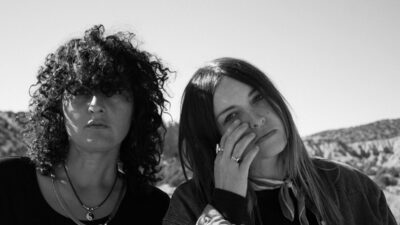
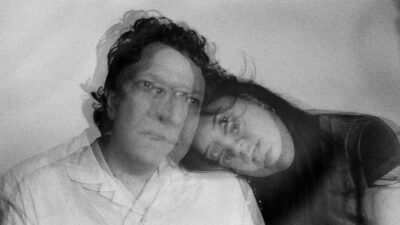



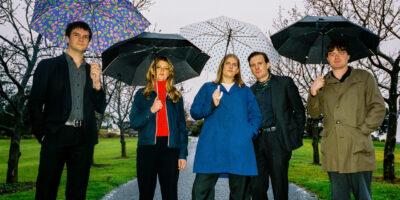
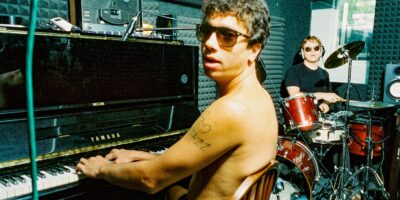

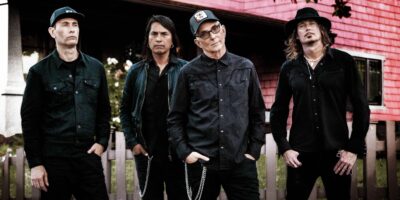
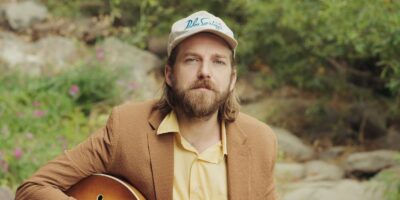
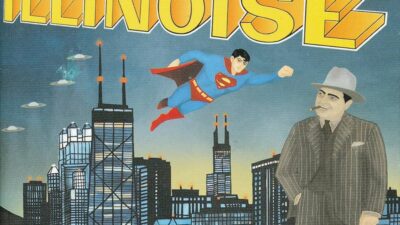
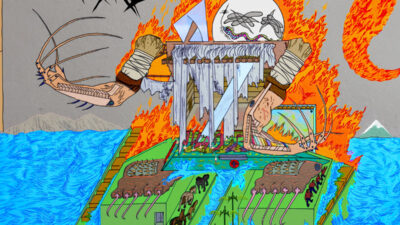

Comments